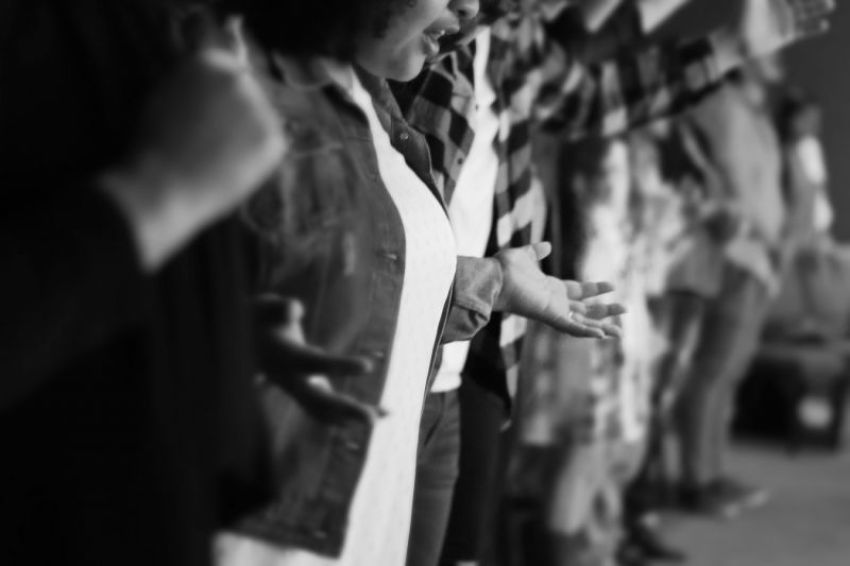Most Americans don’t believe they need God to be good: poll

A majority of Americans do not believe they need God to be moral or have good values, but most with politically conservative leanings still do, according to a global survey by the Pew Research Center.
The nonpartisan polling firm recently published a survey that measures the connection between people’s beliefs about God and morality. The survey, conducted between late June and early October 2019, is based on responses from 38,426 people in 34 countries.
The research also explored the importance of God and prayer in the lives of respondents. The data suggest multiple factors correlate with the belief that God is “necessary to be moral and have good values.” Those factors include an individual’s level of wealth, education and age.
While 70% of Americans still believe that religion is either “somewhat important” or “very important” in their lives, more than half (54%) of Americans said they believe God is “not necessary to be moral or have good values.”
Meanwhile, 44% of American respondents said they believe God is necessary to “be moral and have good values.”
Respondents on the ideological right were found to be significantly more likely to say it is necessary to believe in God to be a moral person and have good values compared to those on the political left in 15 of the 34 countries surveyed.
The largest gap between the ideological right and left exists in the United States.
While only 24% of American respondents who identified themselves as leaning more to the left politically said it is necessary to believe in God to be moral and have good values, 37% of centrists agreed.
But when it comes to respondents who lean to the right politically, more than twice the percentage of those on the left (63%) agreed that it is necessary to believe in God to be moral and have good values.
In addition to respondents in the U.S., the majority of those who identify with the political right in Greece, Argentina and Israel also said that belief in God is necessary for morality and values compared to less than half of respondents on the left in those countries.
The idea of a moral code, according to Psychology Today, extends beyond the individual to include what is determined to be right and wrong for a community or society at large. It is influenced by how people are cared for and socialized.
Darcia Narvaez, a University of Notre Dame psychology professor who has studied the neurobiology of moral development, told USA Today in 2017 that "central morality" forms through "the experience of being loved with empathy and kindness."
The Pew survey suggests that people in wealthier countries are less likely to tie God to morality compared to respondents in less wealthy countries. One example is Kenya. Kenya had the lowest gross domestic product per capita ($4,509 in 2019) of the 34 countries included in the survey.
About 95% of respondents in Kenya agreed that belief in God is necessary for being moral and having good values.
With one of the highest GDPs per capita at $55,815 in 2019, only 9% of respondents in Sweden agreed that God is necessary to be moral and have good values.
“On an individual basis, those who earn at or above the median income threshold in most nations are significantly less likely to say that belief in God is necessary for morality,” Pew research analysts Christine Tamir, Aidan Connaughton and Ariana Monique Salazar wrote in their analysis.
“The largest difference between those at different income levels is in the U.S., where there is a 24 percentage point difference between those below the median income and those at or above it.”
More educated respondents in Europe and North America were also found to be less likely to tie God to morality and values.
“This pattern closely tracks the connection between income levels and the way people answer this question because there is a significant correlation between educational attainment and earnings,” the research analysts explained.
The survey also found that while majorities in all 34 countries said that God and prayer are both important, more respondents said that God is important in their lives than those who said prayer is an important part of their lives.
A median of 61% of respondents across all countries said that God plays an important role in their lives, compared to the 53% who said that prayer plays an important role in their daily life.
Findings from a two-dimension study published on Tuesday by the nonpartisan and nonprofit Presidential Prayer Team show that views and practices related to prayer emerged as the most unique attribute of the faith of self-identified Christians.
The two-dimension study also found that segments within the self-identified Christian population — such as born-again Christians or those who attend evangelical Protestant churches — are minority groups within the aggregate Christian community that have an even larger body of defining attributes when compared to the general population.



























